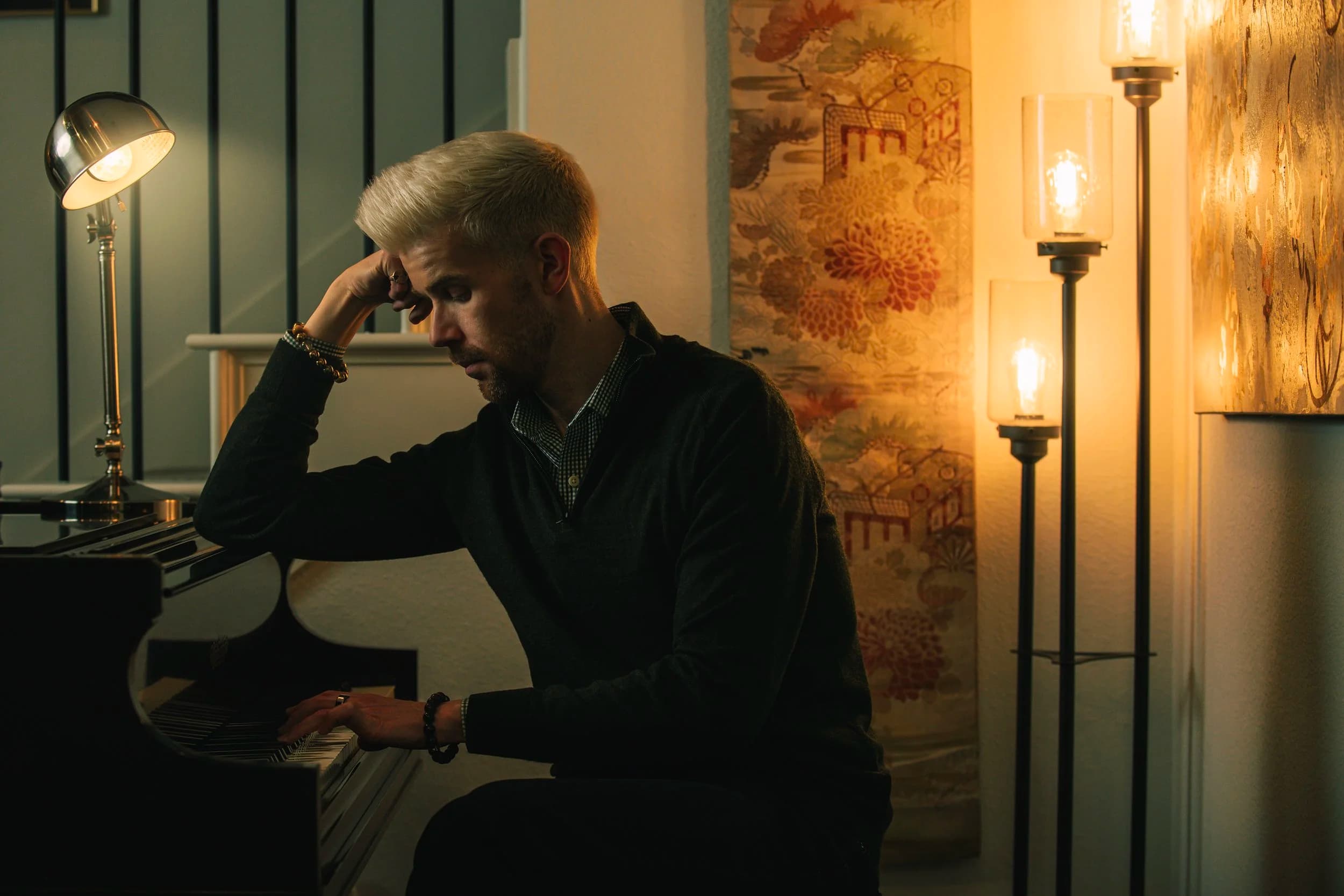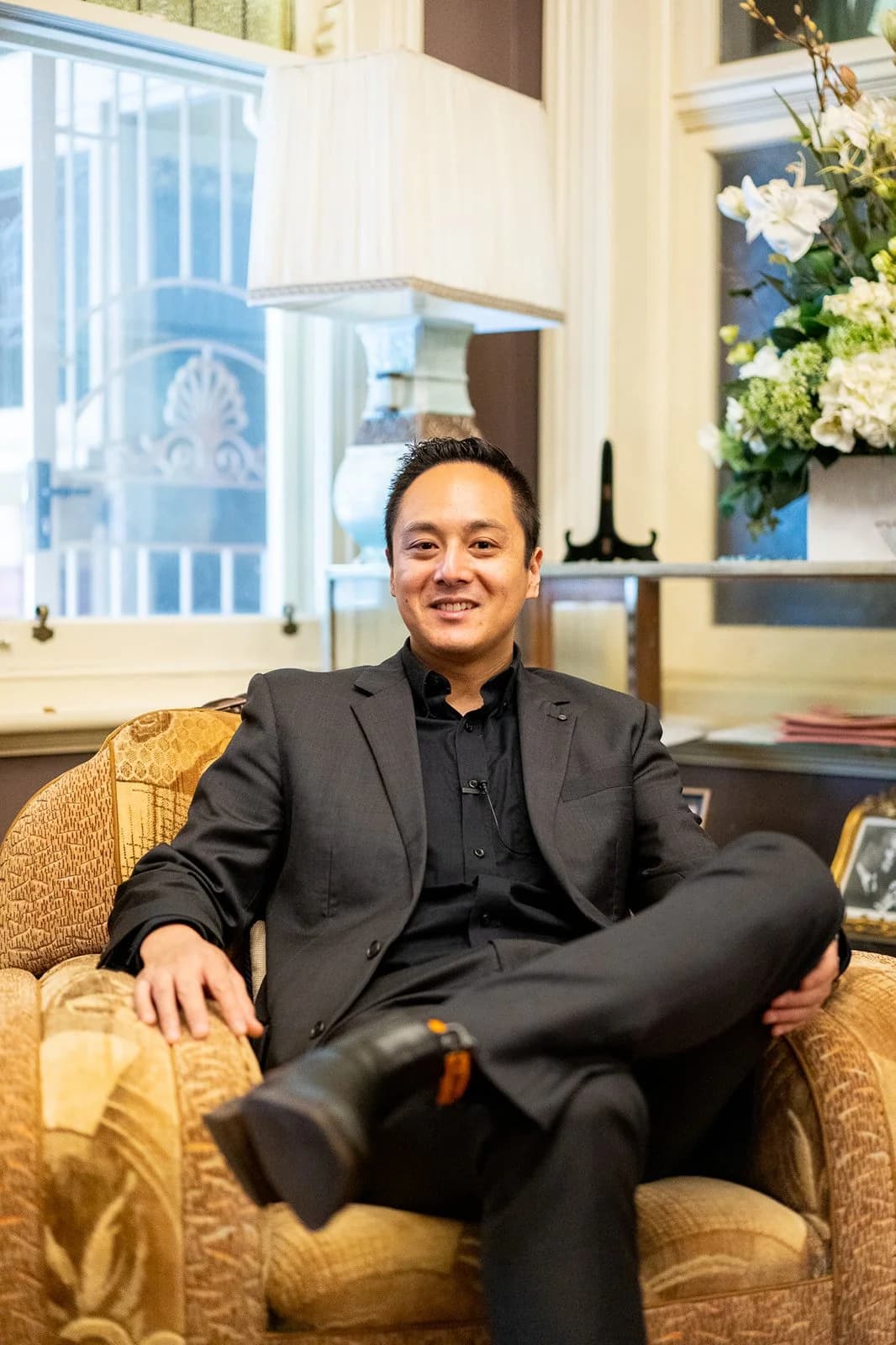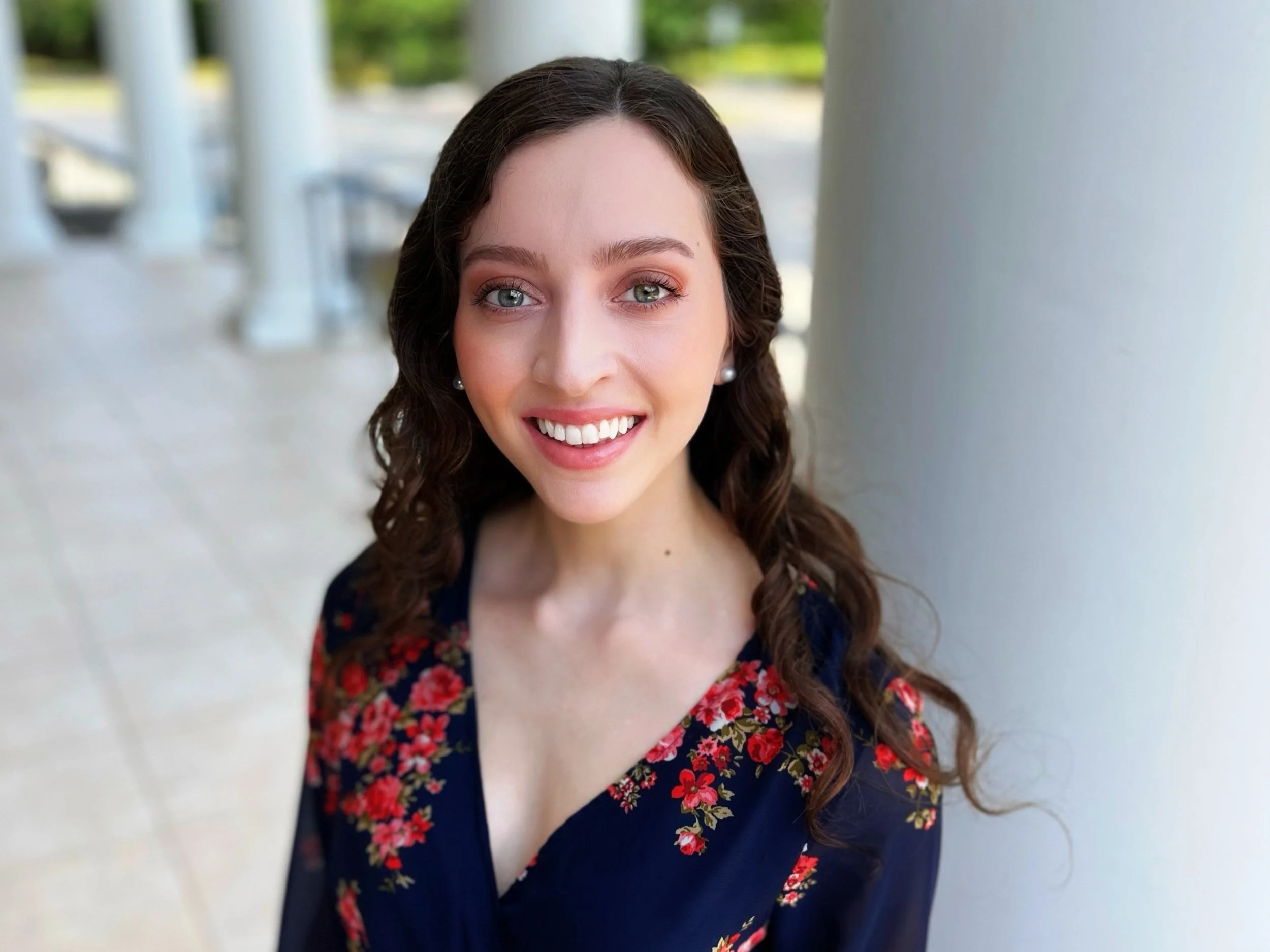Dirén Checa: Mexican Violinist and First Prize Winner of the Grand Prize Virtuoso International Music Competition
By Garrett John Law

Welcome to Classically Minded. Today's guest is violinist, Dirén Checa.
Garrett: Hi Dirén, it's so good to hear from you. It's been 8 years since we were in school together at Interlochen and I am blown away by what you have accomplished in the meantime.
Dirén: Hi, Garrett! It's so good to hear from you as well! I remember our time at Interlochen very fondly and can't believe it's already been 6 years, and 8 for you, since we were there.
Yes, Interlochen is such a special place. We delightfully made art in the woods of Michigan. And we were not aware that we would soon live through a pandemic...
In 2020, you were accepted into a master's degree program in Vienna with famed violin pedagogue, Igor Petrushevski, but Covid-19 prohibited you from traveling abroad. What have you been up to this year instead?

First of all, thank you. I was accepted by Igor Petrushevski to study with him in Vienna but it was just not a viable option seeing how the pandemic was unfolding. I'm still in touch with him, but it's still undecided where I'll be for my master's in 2022 (hopefully).
Since I graduated from Eastman School of Music in 2019, I've come back home to Mexico City and I've been part of the OJUEM orchestra, a pre-professional philharmonic. I currently sit as Assistant Concertmaster. Since the pandemic started, we have been doing productive Zoom sectionals in which we play one-by-one and work on important orchestral excerpts.
I also teach, study with my wonderful teacher, Adrian Justus, work as a part-time administrative assistant for the Esperanza Azteca orchestra program, and learn German on Glossika during my practice breaks.
To practice performing, I've played for online masterclasses and attend Project Build every Saturday. Project Build was created during the pandemic to give musicians an opportunity to listen to and play for each other. And on Sundays, I learn fiddle tunes by ear at Folkway Workshops. It's taught by Lily Honigberg (another Interlochen alum!) and McKinley Wren.
Garrett: Next time you'll have to play some fiddle tunes for us. That would be lovely. In addition to performing, you've also harnessed the power of music to act as a catalyst for social change. Tell us about some of the special projects you've taken on during the pandemic.
Dirén: I was selected to play for a National Violin Competition, but it was canceled because of the pandemic. So I set out to create some quarantine projects!
The first one was "Música que Sana" ("Music that Heals") an online charity recital in partnership with ABC Hospital's Foundation to raise money for COVID-19 treatments. I gathered 17 other Mexican soloists and musicians and we all recorded a piece from our home for the hour-long recital. News media supported us, we did a good job with social media and had a good turnout! You can find the recital on YouTube with almost 16K views.
Garrett: Wow, congratulations. I've included the concert below for our audience to watch.
Dirén starts playing at 21 minutes and 23 seconds into the video.
Dirén: Another project I did was the interdisciplinary video, "CALLADITA". This was with my ContraPunto Collective, comprised of Andrea Sarahí, composer, Pedro Resendez, visual artist, and myself.
I performed Andrea's piece and Pedro directed the abstract video about the gender violence emergency we are living in this country. Our project got a lot of media attention and ended up winning the Audience Prize in the 2020 Goodmesh Competition.
Following that, I was asked by Goodmesh, the creative agency in The Netherlands, to propose an online recital program they could offer to clients (you can see me on their roster on their website). I am also currently in touch with the organization Music To Save Humanity about potential projects/online concerts.
Finally, it was a huge honor to be invited to participate in the "Women in Music" panel by Música UNAM which took place in March. Apart from that, I have really just been practicing my butt off, growing as a musician and human being, and preparing to go abroad again for my Master's.
Garrett: What was it like to grow up as a young musician in Mexico City? What inspired you to be a musician?
Dirén: Growing up as a musician in Mexico City was interesting because, to be honest, there isn't a huge classical music culture here as there is in other places. I was introduced to classical music by my family ever since I was born.
I remember my mother played Mozart in the car all the time. My dad was always listening to music and had a collection of records at home. My favorite was Kissin and Karajan's recording of Tchaikovsky Piano Concerto No. 1. I'd play the CD and just lie on the floor listening to it.

When I was in kindergarten the music teacher told my mom that I had said I wanted to take lessons. So I started seeing a private piano teacher. I began on the violin three years later and stayed with it after dropping piano soon after.
I chose the violin in large part because of Anne-Sophie Mutter's recording of Tchaikovsky's Violin Concerto. I guess you could say Tchaikovsky (as well as Anne-Sophie!) had a really big impact on my childhood.
Teachers who were very important to me during my childhood, and still very much are, are my first piano teacher, Ewa Kotecka, my violin teacher for many years, Cristian Vlad from the Mexico City Philharmonic, and Paul Sonner, who I studied with starting when I was 14 years old. I only took private lessons until I started going up to the summer camps at Interlochen where I had my first orchestra experiences in 2007. Playing in ensembles opened up a whole new world for me musically.
Garrett: What was it like to move from Mexico City to Interlochen, Michigan, a small artistic enclave in the middle of the woods?

Dirén: After attending five summers at Interlochen, I decided to move up there full time and attend the Academy as a freshman mostly because I loved the atmosphere.
Mexico City can be a crazy place and Interlochen is definitely a very calm bubble where you're always in touch with nature. Music and art were around you at all times and it was the perfect place to focus on your craft while being surrounded by all kinds of artists.
I also knew that the level of the musicians was higher than what I was used to at home. I really wanted the challenge to rise to that "international" level. I do think there is a larger classical music culture in the US than here for sure. I mean, some of the best music schools in the world are in the US.
However, I also think that the music scene in Mexico is growing more and more and I'm happy to be continuously contributing to my country with my art.
Garrett: What keeps you motivated as a musician?
Dirén: Honestly, it's the small things that mean the most to me in my career. For example, yesterday in my lesson my teacher told me that he had never heard me play better. A couple of months ago, I changed some things about how I practice and it is extremely satisfying to realize that the work is in fact, working!
I try to take it day by day. My biggest wish is to become a better and better musician, opening up possibilities with my violin. I want to produce music that not only sounds the way I want it to sound but more importantly, touches others!
Garrett: What does diversity in classical music mean to you personally?
Dirén: Diversity in classical music means inclusion and respect for everyone on all sides. I think we need to educate ourselves on all that's beyond the white-male canon and reject any dogmatic ideas of superiority between genres or artists. We need to understand that music is an art form and it's pretty much all subjective.
What we like is shaped by our culture, our history, our education, etc., and we cannot be closed-minded to new things. I think we should get ourselves acquainted not only with the diversity within classical music but with all other genres too. Everything is connected!
Finally, we must speak up about any racism and sexism we encounter, and understand our personal privilege as well.

Garrett: Is there a non-profit you would like to support?
I have a couple non-profit organizations I have in mind! Tsunami Collective here in Mexico deals with gender issues in classical music. PROTESTRA is a great one too! They protest injustices and raise awareness through benefit performances.
Garrett: You are such a high-performing musician. How do you find time to relax?
Dirén: To be honest, I like to keep my days busy! Being a musician is a very demanding career as you know and maintaining an organized daily routine is key for success.
However, I do include "me time" in my daily schedule which is usually an hour or so before going to bed during which I watch Netflix, read, or listen to music. Sleeping eight or seven hours every night is a priority for me, and doing mindfulness for ten minutes every morning is also something that helps me manage anxiety and keep myself grounded.
I also enjoy going running almost every day and hiking whenever I get the chance. In general, I really do think that what keeps me sane and energized is maintaining healthy and consistent habits!
Garrett: Thank you so much for sharing your story. Please keep us updated!
Dirén: Will do and thank you again!


